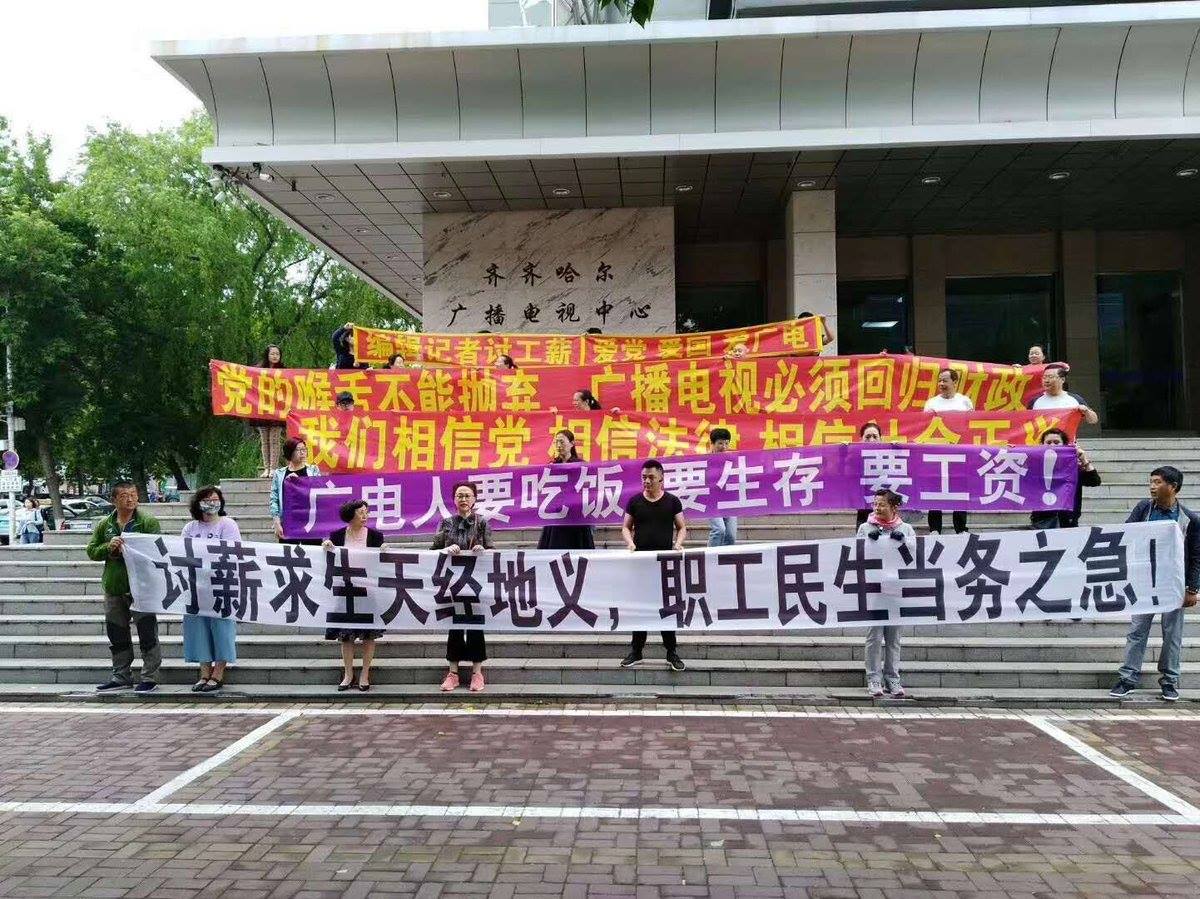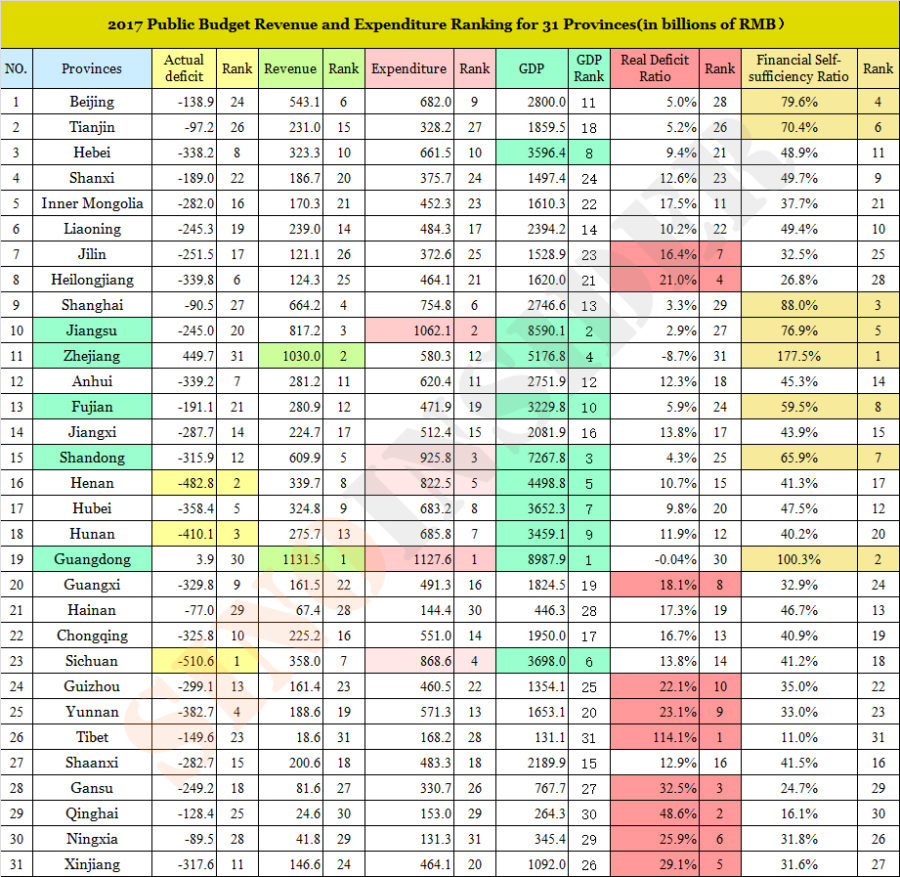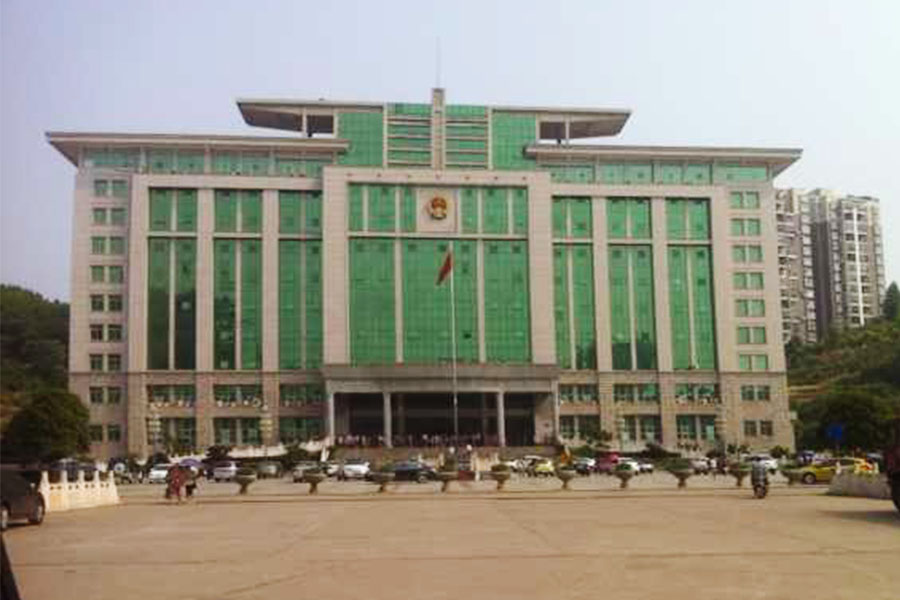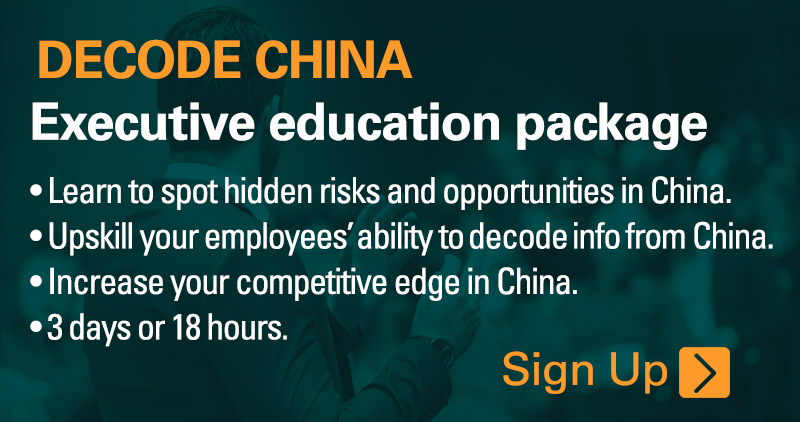◎ The CCP would find it increasingly difficult to exert control over Chinese society if it cannot pay civil servants.
The government of Leiyang, a city in Hunan Province, was unable to pay wages to its civil servants in May, according to mainland media reports on June 8.
The backdrop:
1. Civil servants in Leiyang were supposed to receive their wages on May 15. However, their pay was only released on June 8.
On June 1, a government staff complained on Chinese social media: “It’s the first day of June, but my wages for May has not been paid after a month of hard work. Rumor has it that we won’t receive our wages in June; when would we get paid, and how are we to sustain our livelihood?”
According to an official document explaining the delay in payment of salaries, the Leiyang government was faced with a worsening fiscal deficit every year due to the city’s shrinking coal industry (administrative fees shrunk by 1 billion yuan [about $156 million] between 2012 to 2017). Leiyang’s financial revenue dropped by 18.36 percent in 2016, and fell 15.35 percent in the first five months of 2018. Meanwhile, wages and expenditure on key welfare projects have been increasing year after year.
2. In a separate incident on June 11, reporters and editors of state media Qiqihar Television carried banners outside the station’s headquarters to protest for their wages, according to photos circulated on Chinese social media.

3. In recent months, school teachers in several Chinese cities took to the streets to demand their wages. Military veterans are also continually publicly seeking justice for various rights issues. And since June 8, truck drivers in regions across China have been on strike. Some of the truckers have even been filmed yelling “down with the Chinese Communist Party.”
Our take:
1. China is facing a debt crisis as its economy worsens and Beijing’s deleveraging policies are taking effect. As a result, local governments are seeing a serious financial shortage and are finding it hard even to pay wages to civil servants. China’s financial woes foreshadow the Chinese regime’s coming political crisis.

2. Local governments are struggling to support civil servants, but civil service staff numbers keep increasing each year.
According to official data, the Leiyang government wages and benefits budget was 1.89 billion yuan in 2016, 1.98 billion yuan in 2017, and 2.21 billion yuan in 2018. Meanwhile, government revenue fell 18.4 percent in 2017 from a peak of 27.16 billion yuan in 2016. Also in 2017, the general public budget revenue fell 31 percent to 14.3 billion yuan while the general public budget expenditure was 58.1 billion yuan despite falling 8.7 percent from the previous year. Leiyang government’s financial self-sufficiency ratio barely hit 0.25 percent.
3. Incomes are falling in Leiyang, but local debt is on the rise.
Leiyang government debt was initially recorded as 4.965 billion yuan in 2016. After a round of internal checks in May 2017, however, government debt was found to be 8.36 billion yuan, or an increase of nearly 3.7 billion yuan (or 68.4 percent). In FY 2017, Leiyang government debt rose 55.9 percent to 130.34 billion yuan.
According to a June 2017 report by Peng Yuan Credit Rating, interest-bearing debts payable each year by the Leiyang government between 2017 and 2019 are 166 million yuan, 760 million yuan, and 538 million yuan respectively. The pressure to pay off debts in 2018 and 2019 is comparatively large.
On April 10, or a little over a month before the Leiyang government had to pay wages to civil servants, the city had to make a first phase, 20 percent repayment on 140 million yuan of debt, as well as pay last year’s interest of 54.6 million yuan.

4. In an article on May 4, we analyzed that of China’s 31 provinces, only Zhejiang made a fiscal surplus between 2014 to 2017. In 2017, only eight provinces had a financial self-sufficiency rate of over 50 percent, and the central government transferred a total of 6.5 trillion yuan to local governments. Actual total deficit in 2017 exceeded 3 trillion yuan.
Looking at the scale of local government debt and revenue, many local governments are essentially bankrupt and have to rely on transferred funds from the central government. The central government, however, is not exactly in a good situation financially.
Official statistics show that foreign reserves account for only 60.9 percent of the central bank’s total assets in April 2018, a drop from the 82. 5 percent in June 2014. In other words, the central bank cannot print money without causing a severe inflation.
5. We believe that local governments in China would find it more and more difficult to pay civil servant wages, and the CCP would find it increasingly difficult to exert control over Chinese society.













